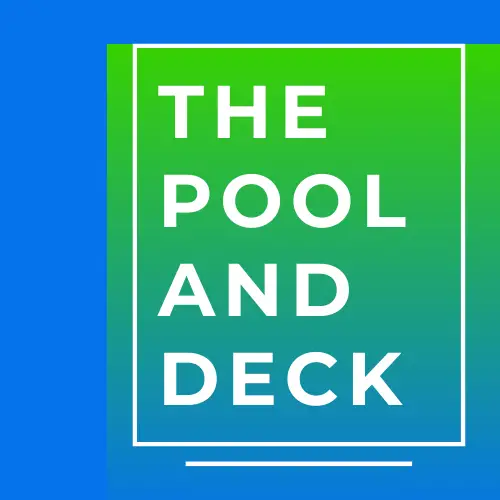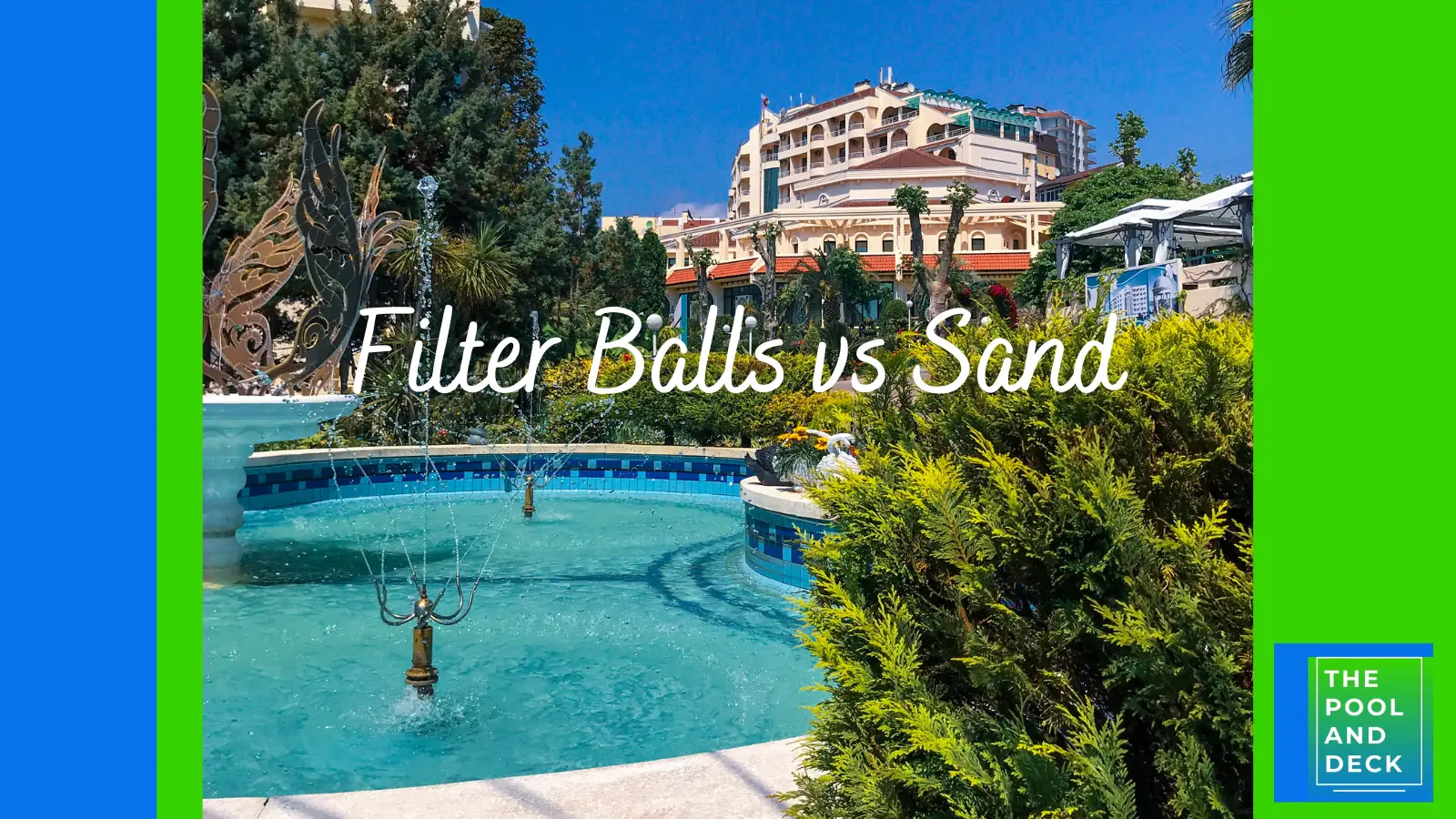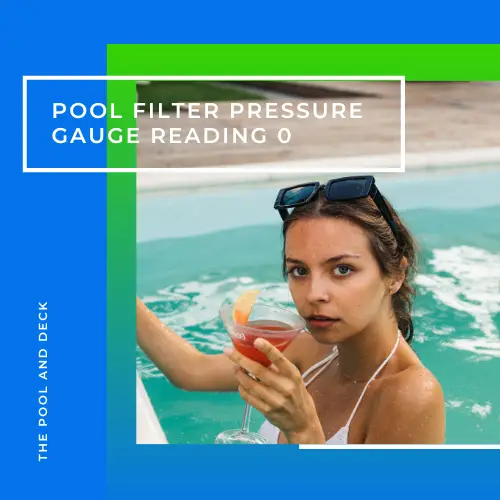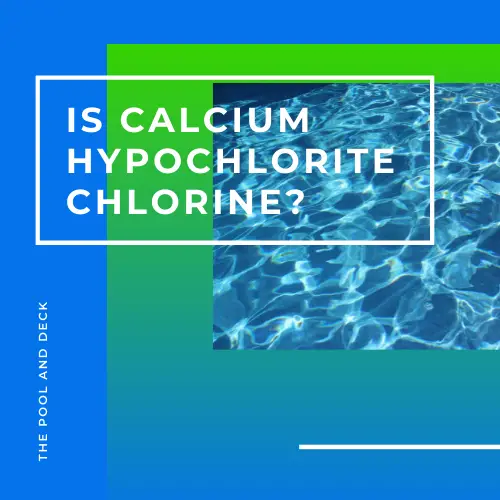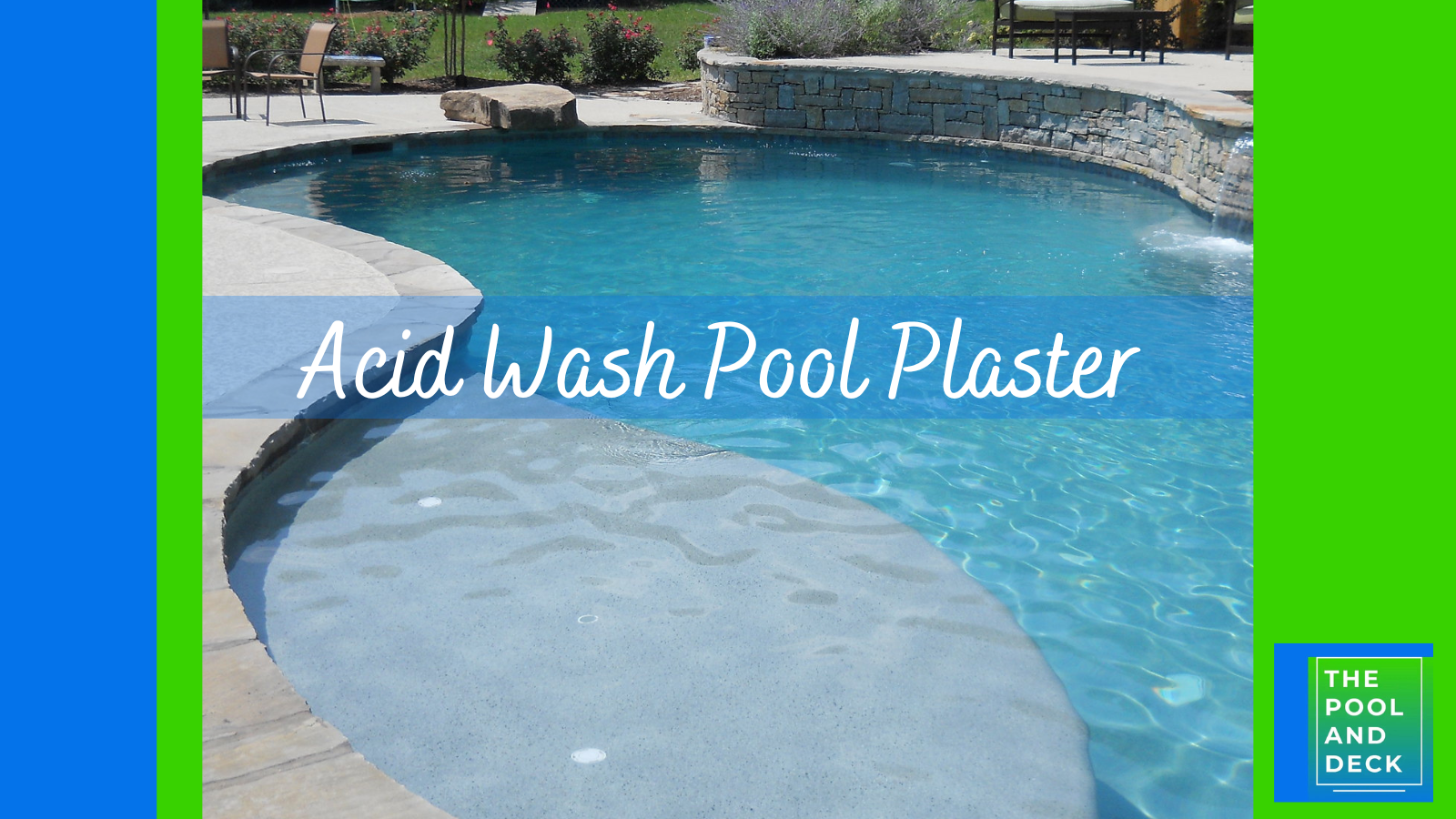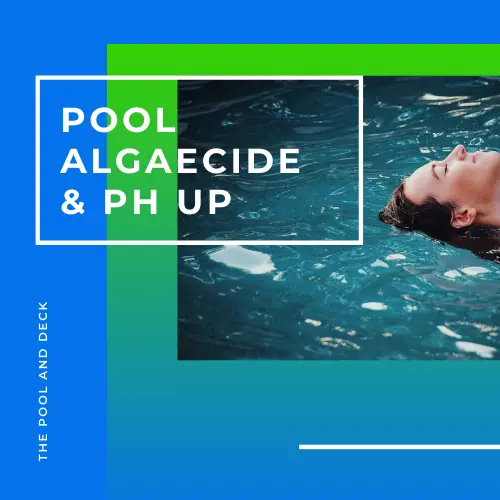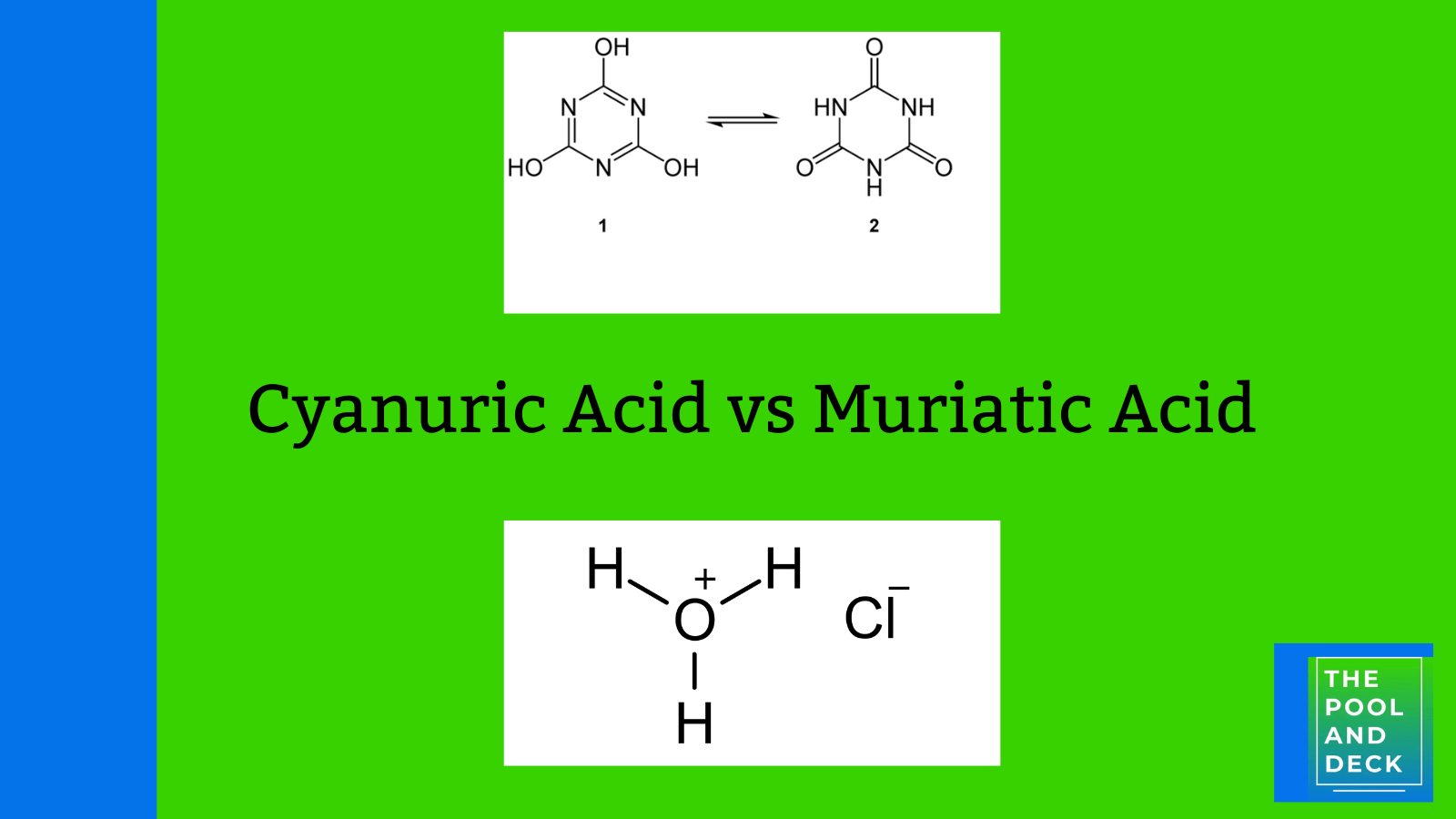Why Do You Need To Shock Your New Pool? (It Is Super Helpful!)
As an Amazon Associate, I earn from qualifying purchases.
Table of Contents
Do I Need To Shock My New Pool When I First Fill It?
Congratulations on your new pool! You have just got it filled up and are ready to splash in. Not so soon. Even though you have filled your new pool with fresh, clean water, pool chemistry is a bit more complicated than that. You will have many questions about your new pool but the one that could be on the top of your mind is probably, “Do I need to shock my new pool when I first fill it?”
Yes you certainly do need to shock your new pool, before you start enjoying a swim in it. Fresh clean water does not stay very clean outdoors for long. Shock your new pool to make sure it is germ free.
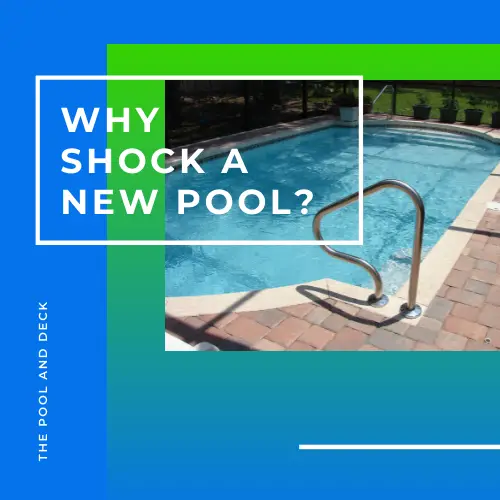
Your new pool may look clean but that is only because you can not see the millions of microscopic germs, bacteria and algae floating in there with the naked eye.
Shock is basically superchlorination. You need to keep your pool disinfected, at all times, by a regular daily dose and a weekly shock dose of chlorine. So why not start off on the right foot by shocking your new pool before your first swim.
Save yourself, your family and your friends from pool based infections and diseases.
When Should I Shock My New Pool?
So, once you have filled up your new pool and before you shock it, you must check the pool water for the basic pool chemistry parameters. These are:
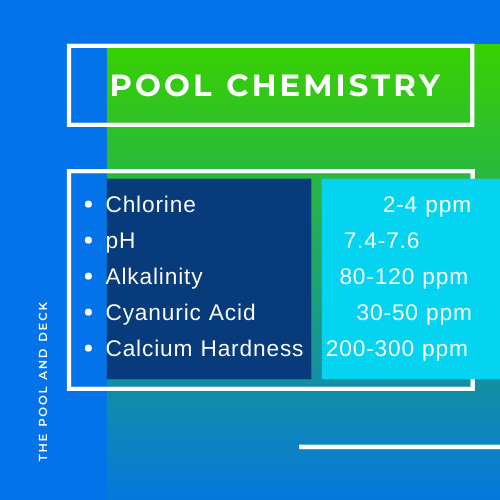
Chances are that pH will be close to 7.0 and alkalinity will be at the lower end of the range. Depending on the source of water you may have some calcium hardness in the water.
The chlorine and Cyanuric Acid (CYA) level will likely be close to zero. Of course! It is a new pool with fresh water.
Balance The Pool Water Chemistry
At this stage do not worry about the calcium hardness and the Cyanuric Acid (CYA) level. However, you may need to add some Baking Soda to move the alkalinity level up, if it is lower than 80 ppm. If the pool water pH is particularly low too, then you may need to use Soda Ash instead.
Baking Soda increases alkalinity but does not affect pH too much. Soda Ash will increase both alkalinity and pH. These two parameters need to be within the recommended range for the chlorine to be most effective.
Find out more about the relation between Free Active Chlorine (FAC) and pH from my earlier blog post Why Do You Need pH Buffer For Pools? (Important!)
Having a low Cyanuric Acid (CYA) level is actually good for shocking a pool. The unused Free Chlorine (FC) will be depleted quickly by the sun’s UV radiation.
How Much Shock Should I Put In My Pool For The First Time?
Once your pool is in regular use you want to keep the Free Chlorine (FC) level between 2-4 ppm. However, the objective of the shock is to increase the Free Chlorine (FC) level to at least 10 ppm. You can go higher than that too!
You can use Liquid Chlorine to shock your pool. Sodium Hypochlorite or Liquid Chlorine, as a pool chemical, is typically a 12.5% solution of Sodium Hypochlorite in water. The Available Chlorine (AC) at 12%, is reasonably high.
One gallon of liquid chlorine will raise the chlorine level of a 10,000 gallon pool by 12 ppm.
Add a gallon of Liquid Chlorine for every 10,000 gallons of pool water by pouring it along the perimeter. Pour a larger percentage in the deep end as the volume of water is higher at that end.
Run your pump for 6-8 hours and check the Free Chlorine (FC) level again. If the chlorine level has dropped to below 5 ppm, then you are not done shocking. You need to repeat the process.
You will know that the shock has been successful if the pool is losing less than 1 ppm every 6-8 hours. At this point, almost all of the pathogens and algae have been neutralized.
You can go ahead and balance the pool chemistry by bringing the pH, alkalinity, calcium hardness and cyanuric acid levels within the recommended range. Add Trichlor tablets to your skimmer, floater or feeder system, run your pump for 8-10 hours and you should be good to go.
What Chemicals Do You Put In A Pool For The First Time?
The key to a healthy pool is in achieving and maintaining the recommended pool chemistry. Free Chlorine (FC), pH,Total Alkalinity (TA), Calcium Hardness (CH) and Cyanuric Acid (CYA) levels must be within the prescribed range.
For this you will need the following chemicals:
- Baking Soda, Soda Ash, Alkalinity Increaser for increasing TA and pH
- Muriatic Acid or pH Reducer for reducing pH
- Liquid Chlorine or Granular Shock for shocking your pool
- Trichlor tablets for maintaining FC level and increasing CYA
- Calcium Hardness Increaser in case CH is below 150 ppm
- Cyanuric Acid – Chlorine Stabilizer for getting CYA between 30-50 ppm
In addition you should add
- Algaecide – to prevent algae growth
- Pool Clarifier – for crystal clear water
- Stain & Scale Preventer
Though not a pool chemical, you should of course also have a Pool Water Test Kit.
For more information on Pool Chlorine Types refer to my post Complete Guide To Pool Chlorine Types. (What Is The Best?).
Recommended Swimming Pool Chemicals
Best Liquid CYA Free Pool Shock
Champion Liquid Chlorine (Sodium Hypochlorite) Pool Shock (12.5%) is easy-to-use, fast, and effective. This Pool Shock does not have Cyanuric Acid (CYA-stabilizer) and will not result in build-up of scale. Order from Amazon using the link below:
Liquid Chlorine Pool Shock (Case – 4 Gallons) – 12.5% Sodium Hypochlorite
Best Cal-Hypo Pool Shock
Calcium Hypochlorite Cal-Chlor chlorine granules, from In The Swim, provide 68% available chlorine for hard-hitting immediate results! Non-stabilized formula is ideal for super shocking or everyday use as it does not contain any Cyanuric Acid (CYA). Order from Amazon using the link below:
In The Swim Calcium Hypochlorite Chlorine Granular Pool Shock
Best Trichlor Tablets
Rx Clear 3″ Stabilized Chlorine tablets are 99% Trichlor with added benefits of containing bactericide, algaecide, and disinfectant. It is slow dissolving with 90% available chlorine. The dosage is 1 tablet per 10,000 gallons of pool water which lasts for up to one week. Order from Amazon using the link below:
Rx Clear 3-Inch Water Soluble Chlorine Tabs
Best Pool Water Test Kit
Taylor Technologies Complete Test Kit will give you test results on all the 5 important pool chemistry parameters, namely, Free Chlorine (FC), pH,Total Alkalinity (TA), Calcium Hardness (CH) and Cyanuric Acid (CYA). Order from Amazon using the link below:
TAYLOR TECHNOLOGIES INC K-2006 TEST KIT COMP CHLORINE FAS-DPD
Thank you very much for reading the post. I do hope you found it informative and helpful.
